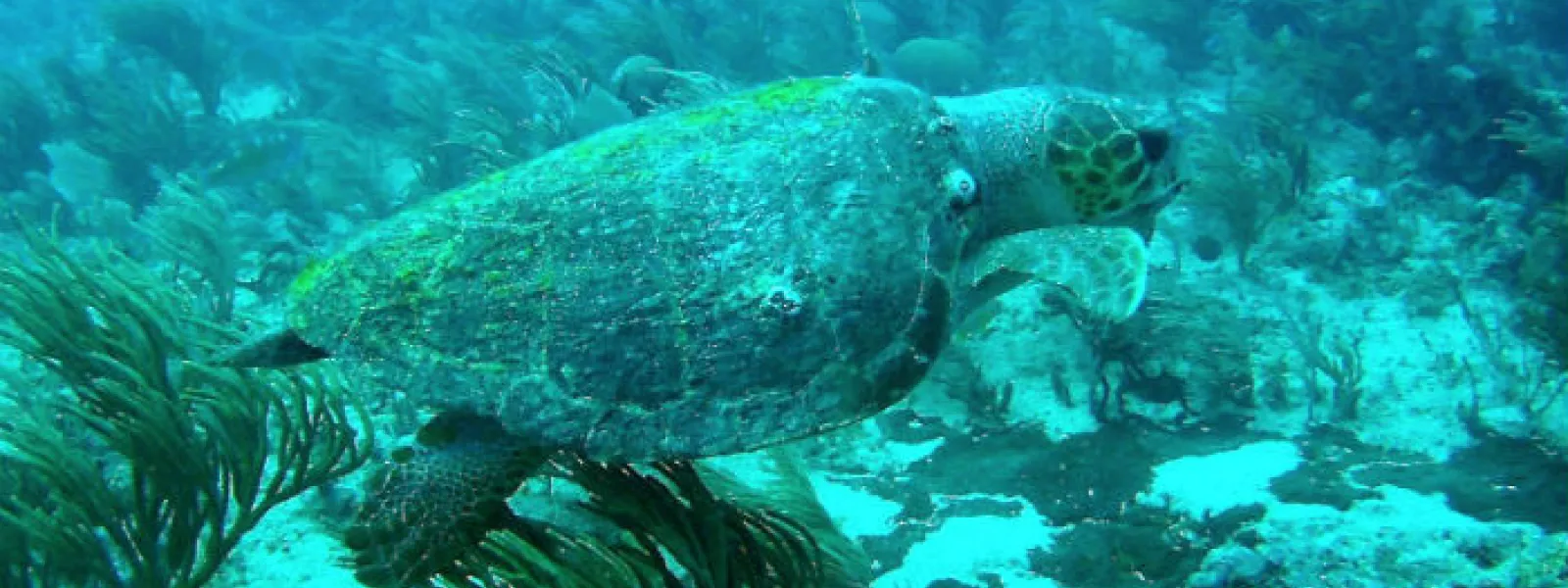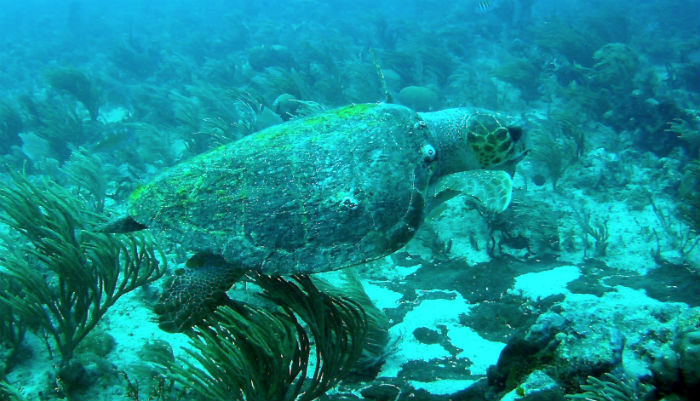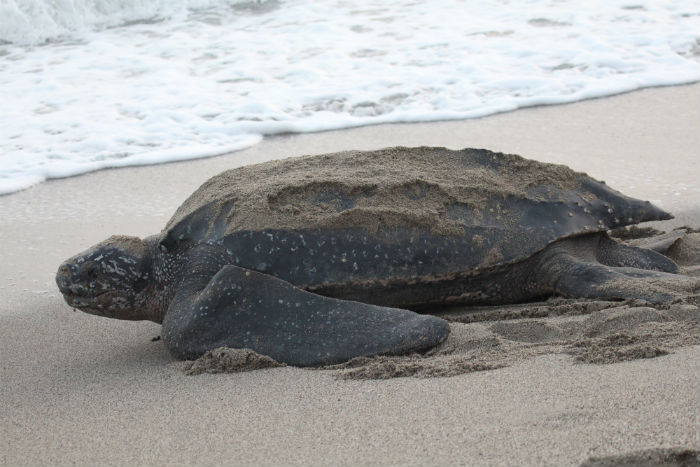
Progress on Protecting the Loggerhead Turtle!
By Gladys Martínez
Significant strides were taken last week toward the conservation of loggerhead sea turtles. A new international resolution intends to strengthen protections for this endangered species in the Americas, and outlines the primary threats facing loggerheads, including mining, all of which should be regulated to avoid harm.
The resolution was approved during the 7th Conference of Parties to the Inter-American Convention for the Protection and Conservation of Sea Turtles (CIT), hosted last week in Mexico City. One of just seven species of sea turtle in the world, the loggerhead turtle is threatened by human activities such as unsustainable fishing, poorly planned development and extractive industries.
AIDA was an actor and an observer in the conference, representing other organizations and individuals from civil society. My colleagues and I spoke with delegates and raised awareness of the harm that marine phosphate mining could cause to loggerheads, and to the ecosystem as a whole.
We drew attention to the potential impacts of the Don Diego mining project in Bahia de Ulloa, Baja California Sur. The region’s first marine phosphate mine would, if executed, gravely impact populations of loggerhead turtles and other species that live in or migrate through Baja waters.
I am pleased to report that I successfully advocated for the resolution to include mining on the list of threats to loggerheads.
We also used our knowledge of international environmental law to help strengthen proposals within the resolution, and to make member States aware that immediate action is required for the conservation of the species.
Details of the Loggerhead Resolution

In the resolution, member States recognize that threats to the loggerhead turtle include development, coastal and deep-water fishing, marine debris, mining, pollution and climate change. The nations promise to work together to implement existing recovery plans for loggerhead populations, as well as to develop new plans in countries that still have not created them.
They made the following commitments:
- Mexico and the United States will work together with Japan to develop a Trinational Recovery Plan for loggerhead turtles in the North Pacific.
- Chile, Ecuador, Peru and the United States will work with the Secretariat Pro Tempore of the Sea Turtle Convention and the Secretariat of the Convention on Migratory Species to implement a Species Action Plan for loggerhead turtles in the South Pacific.
- Mexico and the United States will continue working with collaborating countries of the North Atlantic to share information about the situation and tendencies of the loggerhead turtle of the Northeast Atlantic, and to identify collaborative conservation actions.
A Report on the Conference
Overall, I am quite satisfied with the advances achieved at this conference. I consider it a privilege to participate, and an honor to effectively contribute our knowledge and experience to conventions such as this, where decisions are made at an international level, and then taken back and implemented in each participating country.

Another result of the Conference is the increased protection of the leatherback turtle (Dermochelys coriacea) of the Western Pacific. Member States approved a resolution in which they committed to:
- Deliver information annually to the Secretariat of the Convention on leatherback turtle bycatch taken by their fleets.
- Annually inform the Secretariat of measures that are being adopted to reduce bycatch.
- Identify, with the help of the Scientific Committee, critical areas and fisheries that require spatial and temporal management to reduce bycatch.
- Strengthen actions for the protection of leatherback turtles eggs.
- Establish and evaluate national programs for handling and releasing leatherback turtles taken as bycatch in fisheries.
We trust that the States will transform these international commitments into effective actions for the conservation of sea turtles. At AIDA, we will remain vigilant to ensure these promises become reality.
Gladys Martínez de Lemos

Gladys Martínez is AIDA's Executive Director, working out of San Jose, Costa Rica. For eight years, she led AIDA’s Marine Biodiversity and Coastal Protection Program. Gladys has a law degree from the University of Costa Rica and a master's degree in Environmental Security and Peace from the United Nations University for Peace. She also became a Kellog Executive Scholar in Nonprofit Management through Northwestern University's Kellogg School of Management.
